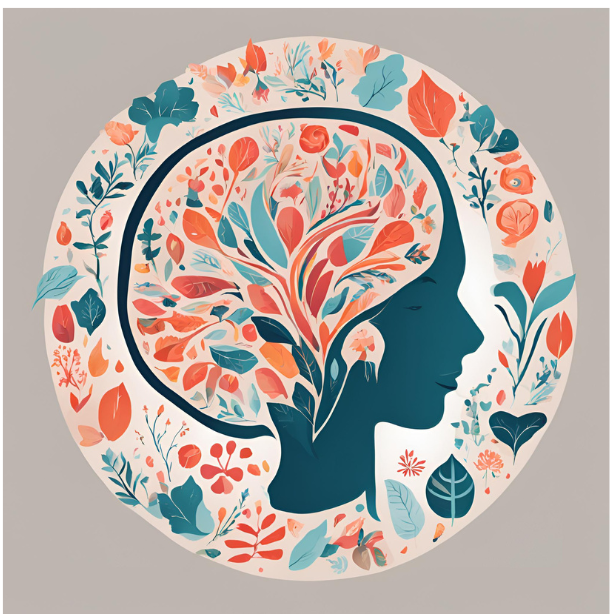Table of Contents
ToggleUnderstanding Emotional Wellness
Understanding emotional wellness is important to understand overall health, involving the ability to understand, manage, and express emotions in a healthy way. In today’s fast-paced world, maintaining emotional health can be challenging, especially with the pressures of personal and professional life. This article provides insights from ancient wisdom, including the Vedas and the Bhagavad Gita, to explain what emotional health is, how it impacts different aspects of life, and provide a holistic approach to achieving emotional balance.
What is emotional health?
Understanding emotional Wellness means emotional health which involves overall state of mind i.e. being aware of and accepting one’s emotions, dealing with stress effectively, and enjoying life despite challenges. It is about developing resilience, maintaining positive relationships, and having a sense of purpose.
Key components of emotional health include:
- Self-awareness: understanding one’s feelings, strengths, weaknesses, and triggers.
- Emotional regulation: the ability to manage and respond to emotions in a healthy way.
- Resilience: the ability to recover from setbacks and adapt to changes.
- Mindfulness: Being present in the moment and being aware of your thoughts and feelings without judgment.
- Positive relationships: Creating and maintaining healthy, supportive relationships.
The influence of personal and professional life on emotional health
Personal life:
- Family dynamics: Family relationships can significantly impact emotional health. Positive family interactions provide support and stability, while conflict can cause stress and emotional turmoil.
- Social relationships: Friendships and social networks are important for emotional health. Loneliness and social isolation can contribute to emotional distress.
- Life events: Events such as marriage, childbirth, or loss can impact emotional health. Positive events can increase happiness, while negative events can cause stress and anxiety.
Professional life:
- Work stress: High job demands, tight deadlines, and lack of control can lead to chronic stress, which impacts emotional health.
- Work-life balance: Struggling to balance work responsibilities with personal life can lead to burnout and emotional exhaustion.
- Career satisfaction: Job satisfaction and a sense of purpose at work contribute to emotional health. In contrast, job dissatisfaction can lead to frustration and a sense of isolation.

Bhagavad Gita on Understanding Emotional wellness : 4 Shloks
The Bhagavad Gita, a Hindu scripture with 700 verses that is part of the Mahabharata, provides timeless wisdom on emotional health through the teachings given by Lord Krishna to Arjuna. The main teachings include:
- Equanimity (Samatva):
Verse: “समत्वं योग उच्यते” (Bhagavad Gita 2.48)
Translation: “Perform your duty with equanimity. Equanimity is called yoga.”
Explanation: Krishna emphasizes maintaining equanimity in success and failure, pleasure and pain. This balance is important for emotional well-being.
- Detachment (Vairagya):
Verse: “तस्मात्वमुत्तिष्ठ यशो लाभस्व जित्वा शत्रुंभुङ्क्षव राज्यं समृद्धम्। मायावैते निहतः पूर्वमेव निमित्तमात्रं भव सव्यसाचिन्॥” (Bhagavad Gita 11.33)
Translation: “Therefore, rise up and achieve fame. Vanquish your enemies and enjoy a prosperous kingdom. By My arrangement, they have already been put to death. O Arjuna, you are only a means.”
Explanation: Krishna recommends practicing detachment from the fruits of actions. This helps to reduce anxiety and stress related to results, promoting emotional balance.
- Devotion (Bhakti):
Verse: “मन्मना भव मद्भक्तो मद्याजी माँ नमस्कारु। मामेवैश्यसि युक्तैवमात्मानं मत्परायणः।” (Bhagavad Gita 9.34)
Translation: “Always apply your mind to the contemplation of Me, become My devotee, bow to Me and worship Me. Completely absorbed in Me, you will surely come to Me.”
Explanation: Devotional service to Krishna (Bhakti Yoga) is highlighted as the path to emotional satisfaction and peace. Bhakti helps to transcend worldly emotions and connect with a higher purpose.
- Self-Knowledge (Atma Jnana):
Verse: “विद्या विन्याससम्पन्ने ब्रह्मणे गवि हस्तिनी। शुनि चैव श्वपके च पण्डितः समदर्शिनः।” (Bhagavad Gita 5.18)
Translation: “Humble sages, because of true knowledge, look upon the learned and gentle brahmana, the cow, the elephant, the dog, and the sophist (outcast) with equal eyes.”
Explanation: Understanding the true self (Atma) beyond physical and emotional states brings deep inner peace and emotional stability.
Practical Applications for Emotional Well-being
- Meditation and yoga: Regular practice enhances emotional regulation and promotes mental clarity. Techniques such as pranayama (breath control) and dhyana (meditation) are effective.
- Devotional practices: Engaging in devotional activities such as chanting and prayer provides emotional solace and strength.
- Balanced lifestyle: Following a balanced lifestyle with proper diet, sleep, and exercise as recommended in the Vedas supports emotional well-being.
- Mindfulness and self-reflection: Techniques of mindfulness and self-reflection are encouraged to better understand and manage emotions.
Conclusion
Understanding emotional wellness is important to understand overall well-being, affecting personal and professional life, relationships, and mental health. The ancient wisdom of the Vedas and the teachings of Krishna in the Bhagavad Gita provide valuable insights and practical tools for achieving and maintaining emotional balance. By integrating these practices into daily life, individuals can develop resilience, maintain healthy relationships, and live more harmonious and fulfilling lives
For More health related updates visit our website Healthyfinancier.com

